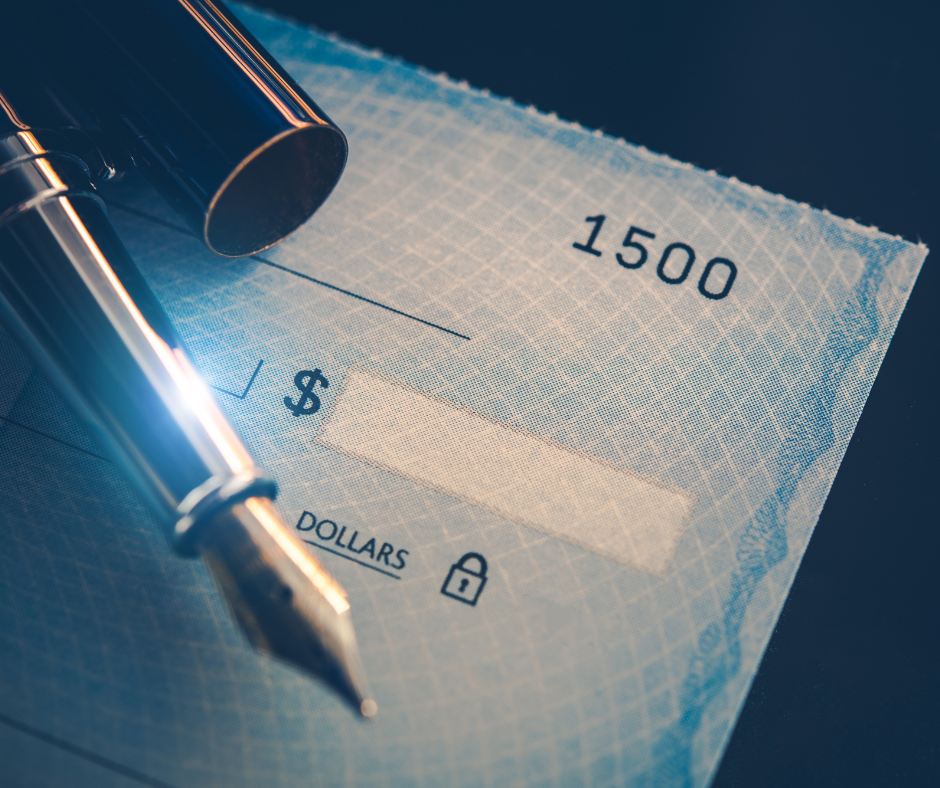Facing MN Check Fraud Charges? Understanding Penalties, Defenses & Court Options
Check fraud is one of the most commonly charged financial crimes in Minnesota. Whether it involves a forged signature, writing a check on an account with insufficient funds, or presenting a check you didn’t realize was invalid, a charge under Minnesota Statute 609.535 can carry serious and lasting consequences. We'll break down how Minnesota check fraud laws work, what penalties you may face, and how an attorney can help protect your future.
What Minnesota Considers Check Fraud
Minnesota defines check fraud (sometimes called “issuing a dishonored check”) as intentionally presenting, issuing, or possessing a check that you know:
- has insufficient funds,
- is from a closed or nonexistent account,
- has been altered or forged, or
- was issued without authorization.
The key factor is intent to defraud. Prosecutors must show you knowingly issued or used a worthless or forged check.
Common Examples of Check Fraud in MN
People can be charged with check fraud for many situations, including:
- Writing a check without enough funds and knowingly presenting it.
- Signing someone else’s name on a check.
- Altering the amount or date on a legitimate check.
- Depositing a fraudulent check received through scams or third parties.
- Cashing a check from an account you know is closed.
Even if the act was a misunderstanding, or you believed funds were available, you may still face charges until the facts are reviewed.
Penalties Under Minnesota Check Fraud Laws
Penalties depend on the value of the check and whether the case involves forgery or intent to defraud. Minnesota divides check fraud into misdemeanor, gross misdemeanor, and felony levels.
Misdemeanor Check Fraud
Cases involving smaller amounts can be charged as misdemeanors. These typically apply when:
- The check amount is low,
- No prior similar offenses exist, and
- There is limited evidence of intentional deception.
Possible penalties include:
- Up to 90 days in jail
- Up to $1,000 in fines
- Restitution to the victim
Gross Misdemeanor Check Fraud
If the check amount, and conduct, falls in a mid-range threshold or the person has prior dishonored-check offenses, prosecutors may pursue a gross misdemeanor.
Felony Check Fraud in Minnesota
A check fraud case may become a felony if:
- The value involved is higher (often several hundred dollars or more),
- The check is forged or significantly altered,
- There are repeat offenses, or
- The alleged conduct shows a clear intent to defraud.
Felony penalties may include:
- Up to 5 years in prison
- Fines up to $10,000
- Lengthy probation
- Restitution orders
- Long-term effects on employment and licensing
Because this crime involves dishonesty, a conviction can create barriers to jobs, professional licensing, housing applications, and financial aid.
Minnesota Check Fraud Sentencing Guidelines
How Prior Convictions Affect the Case
Minnesota’s sentencing guidelines consider criminal history. Prior financial-crime convictions—especially forgery, theft, or past check fraud—can increase the severity of the penalty.
When Passing a Check Becomes Forgery
If the check was forged or altered, prosecutors may also charge under forgery statutes in addition to or instead of Statute 609.535. This significantly increases potential penalties.
Collateral Consequences
Beyond fines or jail time, people convicted of check fraud may face:
- Difficulty securing employment involving money handling
- Loss of professional licensing
- Challenges renting housing
- Long-term criminal background visibility
These practical consequences often matter even more than the criminal penalties.
Defenses to Check Fraud Charges in MN
Every case is different, but some of the most common defenses include:
1. Lack of Intent
Many check fraud cases involve mistakes rather than deception—bank errors, unexpected account holds, or misunderstandings about available funds.
2. Identity Theft or Unauthorized Use
If someone used your checkbook or account without permission, you may have a complete defense.
3. Errors in Handling or Processing
Banks, merchants, or digital payment platforms sometimes miscode transactions, resulting in a dishonored check that wasn’t actually fraudulent.
4. Insufficient Evidence
Prosecutors must show you knew the check would not be honored. If intent is unclear, the case may weaken.
5. Coercion or Pressure
If someone else compelled you to issue or present the check, your attorney may raise coercion as a defense.
Plea Options and What To Expect in Court
Most Minnesota check fraud cases do not go to trial. Instead, attorneys negotiate outcomes based on restitution, intent, and criminal history.
Diversion Programs
Some counties offer diversion programs for first-time offenders. Successful completion may result in:
- Dismissed charges
- No conviction
- Record clearance options
Restitution-Based Negotiations
For many defendants, paying restitution early can significantly improve the outcome of the case.
Reduced Charges
Your attorney may negotiate to reduce a felony to a misdemeanor or secure a stay of adjudication (no conviction if conditions are met).
Need Help With a Check Fraud Charge in Minnesota?
A charge under Minnesota Statute 609.535 can be stressful, but you don’t have to navigate it alone. The right legal strategy can reduce penalties, protect your record, and help you move forward with confidence.
If you’re facing accusations involving Minnesota check fraud laws, forged checks, or insufficient-funds charges, Bruno Law can defend you. You have a lot at stake, and we will work to ensure the best possible results to protect your future.

